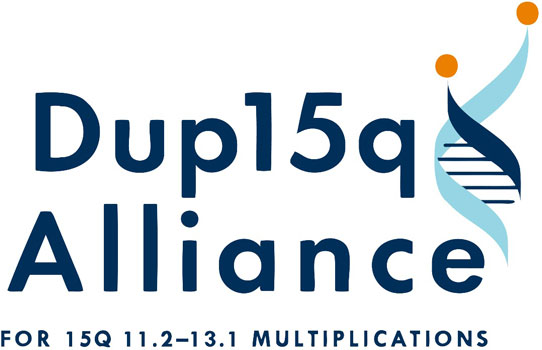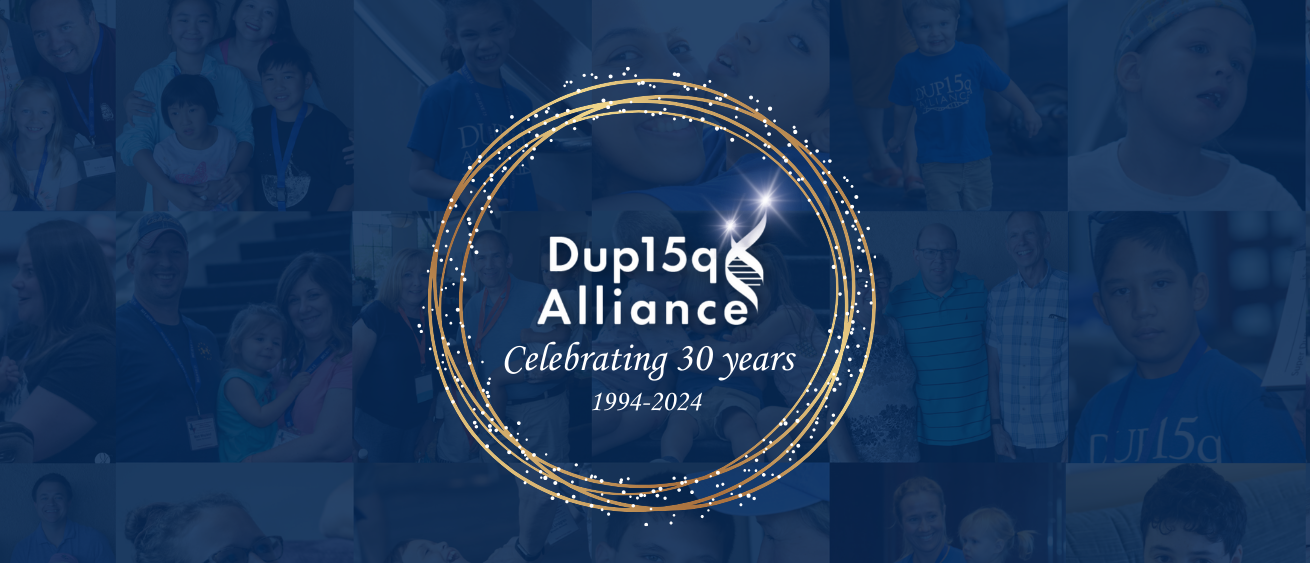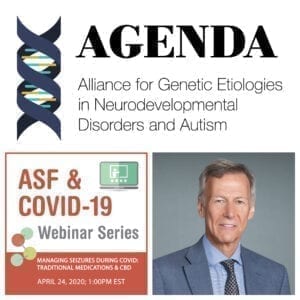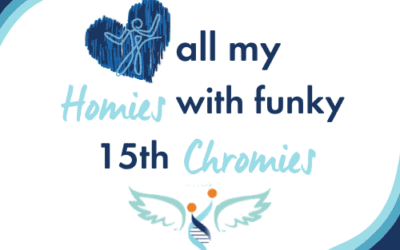In times like these that the Dup15q Alliance is committed to be on the front lines of support for our families.

COVID19 Financial assistance
COVID-19 – 211 Network
If you need assistance finding food, paying house bills or other essential services, use the search bar at the link below to find your local 211 or dial 211 to speak to someone who can help.
Financial Assistance Resources
TailorMed are sharing the most up-to-date information through their Financial Navigation Service. This is a live list that will be updating on an ongoing basis to share any opportunities that arise.
COVID-19 Resource Relief
Purpose:
The purpose of the COVID-19 Resource Relief (CRR) program is to provide financial assistance to individuals living with any disability, diagnosis, or chronic illness to help alleviate the burden of the coronavirus-related quarantines and social distancing practices.
This virus has created a variety of brand new struggles in daily life, many of which are tied to the financial impact of widespread quarantine. One community being hit harder by these new challenges is the disabled community. For many who live with a disability, quarantine is not a choice, but a necessity for survival.
This assistance is provided in the form of one $100 Visa Gift Card to be used for food, hygiene products, and other living expenses associated with self-isolation and quarantine.
NORD Launches Financial Assistance Program for Rare Disease Community Members Impacted by Covid-19
t this time of crisis and with the health, safety and well-being of patients and caregivers as its top priorities, the National Organization for Rare Disorders (NORD®) today launched its COVID-19 Critical Relief Program to provide much-needed assistance to members of the rare community affected by the COVID-19 pandemic. The program provides financial relief that may be utilized to support critical, non-medical needs.
Through the new program, NORD will provide financial assistance to eligible patients, covering up to $1,000 annually. It provides funds for essential expenses including, but not limited to unexpected utility expenses; cellular or internet service; emergency repairs to car, home or major appliances; and rent or mortgage payment assistance. Interested rare disease patients and families can reach out to NORD to find out if they meet eligibility requirements.
For more information on the NORD COVID-19 Critical Relief Program and to apply, please contact NORD by telephone at 203.242.0497, via email at COVID19assistance@rarediseases.org, or visit rarediseases.org. To show your support, please consider making a donation to the program so that even more people can be helped. Finally, to stay informed, the NORD COVID-19 resource center presents information and links relevant to the rare community during this pandemic.
I Stay Home for Rare
The purpose of the I Stay Home For Rare Fund is to provide quick access to emergency monies needed by applicant families and individuals living with rare disease during the COVID-19 pandemic.Aid currently available in amounts ranging from $500-$2,500.
Financial assistance for
- Food, rent, utilities, transportation, and other essential recurring household bills.
- Medical care, medication, treatments, medical equipment and other recurring bills related to maintaining health.
- Childcare services related to maintaining work status and/or physical and mental health for parents and caregivers.
- Necessary items specifically related to pandemic protection such as masks, soap, cleaners, hand sanitizer, etc.
UCB Financial Assistance During COVID-19 Pandemic
We understand some patients are facing hardship due to the COVID-19 pandemic and may experience difficulty affording UCB medicines due to job loss, job furlough, or loss of insurance coverage. Staying true to our core beliefs, UCB is committed to ensuring patients, whose physicians have prescribed our medications, have uninterrupted access to their needed treatments. Contact ucbCARES at (844) 599-CARE (2273) or by email at UCBCares@ucb.com to see if you qualify for medicines at no cost.*
* As we are experiencing higher than normal volume of requests, our response time may be delayed. We appreciate your patience as we work to get back to you as soon as possible.
Autism Care Today
COVID-19 EMERGENCY FUND TEMPORARY APPLICATION
Responding to COVID-19 in Arkansas
Arkansas Community Foundation has established a statewide COVID-19 Relief Fund. Your contribution will be pooled with contributions from other Arkansans to help our neighbors affected by the pandemic.
HOW WILL THE ARKANSAS COVID-19 RELIEF FUND BE USED?
In the short term, the fund will provide rapid-response grants to nonprofit organizations working on the front lines. This critical funding will enable them to maintain operations and support the increased demand for services. In the intermediate term, the fund will focus on addressing the ongoing economic needs of Arkansans affected by the pandemic and shoring up critical systems in our state, such as healthcare, emergency food distribution, schools, etc.
ASF Resources – Autism and COVID-19
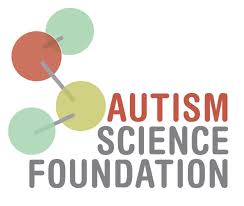
The COVID-19 virus and resulting social distancing, school closures and general panic are taking a unique toll on autism families.
Our friends at Autism Science Foundation has compiled this list of resources and will update it frequently.
Dup15q Alliance COVID-19 Announcement

Due to quickly evolving information, recommendations may be subject to change and will be updated as needed.
The 15q Clinical Research Network has prepared these FAQs to address concerns from the Angelman/Dup15q Syndrome communities and healthcare professionals regarding the COVID-19 outbreak.
Elsevier - Novel Coronavirus Information Center
![]()
Elsevier’s Novel Coronavirus Information Center Here you will find expert, curated information for the research and health community on SARS-CoV-2 (the novel coronavirus) and COVID-19 (the disease).
All resources are free to access and include guidelines for clinicians and patients.
For Researchers
Under the Research tab, you will find the latest early-stage and peer-reviewed research on COVID-19 from journals including The Lancet and Cell Press. We have also made nearly 20,000 related articles free to access on ScienceDirect. These articles are also available to download with rights for full text and data mining, re-use and analyses for as long as needed.
For Clinicians
Under the Clinical information tab, you will find evidence-based skill guides and care plans for treatment, safety and patient education, along with emergency prepared webinars by the CDC.
For Patients
In the Patient resources section, you can find our 3D4Medical coronavirus video, resources from the CDC and WHO, and information about Elsevier’s Patient Access Program for research.
Global Genes - COVID-19 rare disease resource list
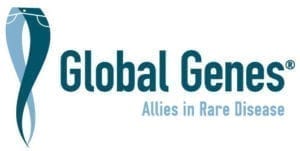
Global Genes has created COVID-19 rare disease resource list to help everyone around the world who is in quarantine or practicing social distancing. This includes government resources, entertainment, opportunities for virtual social interaction and more. We encourage everyone to contribute. Please share your resources with us at advocacy@globalgenes.org so we can add to this list, and please share this list with your community.
One way we can overcome fear of the unknown and create a sense of belonging is by sharing our stories with one another. Submit your story using this link for a chance to be published on our website: https://globalgenes.o
Medicaid Rules, Waivers and Changes - Autism Science Foundation
Medicaid Rules, Waivers and Changes from Autism Science Foundation
The Centers for Medicare and Medicaid Services are taking actions to allow more flexibility for healthcare providers, including expanded telemedicine access, to provide services for those covered individuals.
The Kaiser Family Foundation issued a brief on how Medicaid can enhance state capacity to respond to COVID-19, including how they can broaden accessibility and coverage.
Managing Your Child’s Education and Free Time - Autism Science Foundation
Managing Your Child’s Education and Free Time from the Autism Science Foundation.
The Department of Education has published a Q&A focused on providing services to children with disabilities during the coronavirus outbreak, which can be downloaded here.
The National Council on Severe Autism has created an online event for parents and caregivers to share stories, concerns, advice, and questions. Their guest commentators Lee Wachtel, MD, Medical Director, Neurobehavioral Unit, Kennedy Krieger Institute, and Alycia Halladay, PhD, Chief Science Officer, Autism Science Foundation, joined NCSA President Jill Escher and Vice President Feda Almaliti in leading the discussion. Topics included everything from hand washing to mommy guilt during this time. You can view the recorded video here.
The Center for Discovery has shared great ideas for indoor and outdoor activities for families in the time of coronavirus. Click here to view.
The National Autism Association has put together an excellent list of resources including teaching tools for kids, tips for caregivers and how to practice social distancing. Click here for their list.
Interested in taking a field trip without leaving the house? Click here to take a virtual tour of famous museums around the world and here for a virtual field trip lesson plan.
Tips for Staying at Home - Angelman Syndrome Foundation

MARCH 30, 2020
TIPS FOR STAYING AT HOME
Angelman Syndrome Foundation Resource Team Member, Michelle Harvey shares some tips and ideas for staying at home with an individual with AS.
Quarantine/At-Home Edition!
The first thing WE often do when we get to work is check our calendar and see what meetings/obligations we have that day. The predictability of a schedule is important for individuals with Angelman syndrome, too! Keep categories general to allow for slight changes (tv, then, walk, then puzzles, then lunch!), print out google images to aid in visual understanding if needed, and make sure to refer to it throughout the day as you check off each item! Contact Michelle Harvey on the ASF Family Resource Team for help with this.
- Listen to Dr. Jane Summers discuss how to manage difficult behaviors and during this time of staying inside.
This is a clip from a recent webinar discussing COVID-19. - Shaving cream is great for sensory play and fine motor fun at home! Keep it contained in a baking sheet or pan. Practice writing letters and numbers, draw shapes or pictures in it, or hide legos, stacking beads, etc. in it and go on a hunt!
- Struggling with behavior while at home for extended periods of time? Be sure to explain the behavior that your loved one with Angelman syndrome CAN be doing to get the same result as the negative behavior. For example: “I don’t like it when you hit me. If you want my attention, you can show me gentle and I will talk to you” or “Don’t grab the food when you want more, tell me that you want more” and model asking for more with whatever communication system (AAC, picture symbols, sign language, etc.) they can access!
- Need to get your own work done from home but having trouble with your loved one with Angelman Syndrome waiting until you are done? Use a visual timer app that they can see to designate when your meeting or conference call is over!


- Struggling with physical boundaries while at home for extended periods of time? Use easily-removed painters tape on carpet to designate off-limits areas (such as boxing off the kitchen), or on the kitchen table to designate individual work areas. Explain it to all of your kids, and provide praise and attention while your child with Angelman Syndrome is staying within their area. If they cross a boundary, redirect them with minimal attention and eye contact back to their area, then positive attention when they are in their area.
- During this time of isolation and quarantine several literacy and read-aloud resources have made their sites free for an extended period of time – try Vooks or Epic. These sites animate and read aloud the text with the words on screen, and highlight or emphasize the word being read for greater literacy understanding and word recognition! https://www.vooks.com/ | https://www.getepic.com/
- Create opportunities for inside movement and activity! Watch GoNoodle videos and dance along, do CosmicKids yoga videos on Youtube, or create safe indoor obstacle courses using painters tape on carpet or tile (make arrows out of painters tape throughout different rooms and up and over pillows or beanbags, encourage kids to follow the line throughout the house from the start to the finish!)
- During this time where so much is out of our control, do your best to offer choices when you can – this helps create some feeling of control for our loved ones with Angelman syndrome and decrease negative behaviors that may result from the anxiety of the new situation. Create a page of various activities, then let your loved one with AS pick what to do first, offer a choice of what is for lunch, or even let them pick what room in the house to work/hang out in.
- Tips for transitioning away from screen time at home: as much as you can try to plan for the amount of screen time in advance. Set a visual timer to show when screen time will be over, give reminders of how much time is left and what the next activity is, and don’t go straight from screen time (preferred activity) to a non-preferred activity – a good strategy is to have a slightly less preferred activity first. For example, go from screen time to snack to puzzles/work tasks.
- If you’re able, use this time to work on increasing independence in life skills routines at home. Try encouraging and teaching your loved one with AS the steps to check the mail, water plants in the backyard, or sorting clean laundry before you fold it. When teaching new routines like this, remember that consistency and repetition is key – model the task, explain the steps as you are doing them, give lots of opportunity for practice (check the mail 2-3 times per day if you want!) and remember to be positive and encouraging when they are trying something new! As the task becomes more predictable and familiar, you can start slowly fading away your prompts or physical presence and increase independence!
- Struggling with work or activities from school/teachers/day program to do at home to keep your loved one with AS occupied and not bored? Reach out to Michelle Harvey on the ASF Family Resource Team for ideas based on current goals and strengths! We can brainstorm ideas using what you have at home or can order on Amazon to come up with meaningful and creative schedule and activities based on what is feasible at YOUR house with YOUR work from home schedule.
Tools to Grow at Home
Tools to Grow, Inc. is a place to share ideas and inspire others with engaging print and go resources, activities, handouts, worksheets, and educational material. For a modest yearly investment, your FULL PREMIUM Membership allows you access to thousands of high quality materials. FREE LIMITED Membership offers free access to the same high quality, yet fewer resources.
Members will obtain affordable, yet highly effective and engaging material for use during direct treatment, assessment, consultation, and clinic management. Tools to Grow, Inc. offers comprehensive resources that target the diverse needs of children. This includes skill areas such as fine motor, sensory processing and self-regulation, handwriting, visual perception, visual motor integration, self care, life skills, bilateral coordination, executive functioning, gross motor, keyboarding, literacy and communication, social skills, and student fieldwork.
Tools to Grow, Inc. is an innovative membership-based website unique to the field of Pediatric Therapy. Prolonged and time consuming searching for resources will be a thing of the past for our members! Members will gain comprehensive caregiver and staff resources when collaborating with others and managing their caseload. This includes assessment checklists, documentation shortcuts, response to intervention records, early intervention, and school based curriculum.
https://www.toolstogrowot.com/free-therapy-resources/sort/date-newTherapy at Home
Webinar: 15q Clinical Research Network discuss COVID-19.
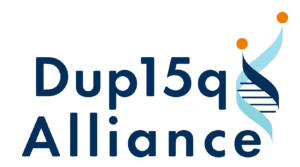

Dup15q Alliance and Angelman Syndrome Foundation hosted a webinar with clinicians from the 15q Clinical Research Network to discuss COVID-19.
Video modules to improve children’s social and communication abilities - Autism Science Foundation
Video modules to improve children’s social and communication abilities from Autism Science Foundation
Help is in Your Hands is a series of video modules for families of very young children with social communication challenges. Modules include narrated video lessons and examples of real parents and children interacting in their own homes, with suggestions for follow-up activities parents can try.
The Autism Navigator is a unique collection of web-based tools and courses that uses extensive video footage to coach parents on delivering evidence-based tools in a multitude of settings. It includes the Video Glossary that contains over 100 video clips to illustrate common treatments available for children with autism.
Webinar: Accessibility to Care During COVID-19
Dup15q Alliance joined Child Neurology Foundation and Tuberous Sclerosis Alliance for a virtual town hall regarding Accessibility to Care/Telehealth During COVID-19
Topic included: Managing Pediatric Care through Telehealth, Managing Adult Care through Telehealth, Conducting clinical research and trials as well as managing medications.
Presented by:
Charuta N. Joshi, MD; Elizabeth Thiele, MD, PhD; Shafali Jeste, MD; Jessica Krefting, BSN, RN
Moderated by:
Elizabeth Jalazo, MD
Download Dr. Joshi’s Presentation
Webinar: American Epilepsy Society - Telehealth for Epilepsy: Overcoming the Obstacles
Ask the Expert Webinar
Telehealth for Epilepsy: Overcoming the Obstacles
April 3, 2020, at 12:00 PM ETThe rapidly-evolving COVID-19 public health emergency and the resulting closure of outpatient clinics and restrictions on office visits have dictated the need to shift the way we provide care to patients.Now, more than ever, telehealth is a safe, convenient, and effective way to continue seeing patients while keeping the risk of COVID-19 exposure low.Implementing telehealth at your practice can be overwhelming. AES is here for you during this challenging time and is pleased to announce this to help you get started.Join us for an introduction to telehealth from providers with extensive experience using telehealth successfully in their own epilepsy practices. We will discuss ways to provide telehealth services for epilepsy care, the unique aspects of working with epilepsy patients in this way, and how to bill for these services.
- List methods to provide telehealth services for epilepsy care.
- Explain the unique aspects of providing epilepsy care via telehealth
- Describe how to bill for telehealth epilepsy services
PresentersMarvin A. Rossi, MD, PhD, Rush University Medical CenterCarl W. Bazil, MD, PhD, Columbia UniversityEdward “Rusty” Novotny, MD, FAES, FAAN, Seattle Children’s HospitalModeratorDavid M. Ficker, MD, University of Cincinnati
Webinar: AGENDA - Managing Seizures During COVID: Traditional Medications and CBD
ASF hosted a webinar to discuss seizures and how to manage them during the COVID-19 emergency. Dr. Orrin Devinsky, Director of the Comprehensive Epilepsy Center at NYU, presented the newest and latest research on traditional medications for the treatment of seizures, as well as the use of cannabidiol.
You can listen to a recording of the webinar here.
Webinar: Citizens United for Research in Epilepsy Webinar on COVID-19 and Epilepsy

CURE: Citizens United for Research in Epilepsy hosted an online webinar on COVID-19 and Epilepsy. Epileptologist Dr. Jeffrey Loeb and neuroimmunologist Dr. Michael Carrithers joined to give updates and answer questions.
Webinar: CNF - How to Manage Disruptive and Harmful Behavior During COVID-19

CNF hosted a conversation between Nathan Call, PhD, BCBA-D and Shelly Meitzler to discuss Management of Disruptive and Harmful Behavior During COVID 19. Nathan Call is the Clinical Director of the Marcus Autism Center and an Associate Professor at Emory University School of Medicine, Department of Pediatrics. Shelly Meitzler is a parent, and Regional Program Manager, East for The Tuberous Sclerosis Alliance.
Webinar: DEE-P COVID-19 through the lens of Grief
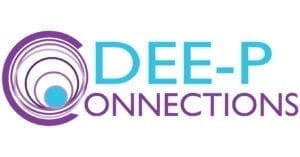
We are proud to be a partner of the DEE-P initiative which is dedicated to serving the distinct needs of families with children most severely affected by DEEs.
DEE-P Connections hosted a special webinar with two Licensed Social Workers to discuss the additional grief and stress brought onto our families by the COVID-19 (coronavirus) pandemic. We welcome you to listen in and hear about some strategies to navigate this increased grief as well as sustaining yourself as a caregiver.
Kara Fox, mother to Julian, who has Lennox-Gastaut Syndrome, is an LGS Ambassador for California, will share her experiences with grief during the COVID-19 pandemic.
Emily Prusator, LICSW and Donna Tish, LICSW—from the Wendt Center for Loss and Healing, a non-profit mental health agency that creates pathways to healing for children, youth, adults and families in the DC Metro Region, will be our guests. For forty-five years, the Wendt Center has been the leading expert in the region helping people of all ages heal and rebuild after life’s worst moments. Founded in 1975 as an organization focused on counseling for grieving individuals, the Wendt Center has evolved into the area’s primary provider of mental health services dedicated to grief, loss, and trauma.
Webinar: DEE-P Protecting Medically Complex and/or Immune-Suppressed Children with Epilepsy from COVID-19

We are proud to be a partner of the DEE-P initiative which is dedicated to serving the distinct needs of families with children most severely affected by DEEs.
This webinar, “Protecting Medically Complex and/or Immune-Suppressed Children with Epilepsy from COVID-19” was recorded on March 19, 2020. Please note that the most-up-to-date information on COVID-19 (Coronavirus) may have changed since this webinar took place. You can download the slides from the initial presentation here.
Watch the full Webinar here: https://www.deepconnections.net/covid19-resources
This webinar, which was initiated and hosted by DEE-P Connections, was organized and executed with our partners at the International Foundation for CDKL5 Research (IFCR) and The Epilepsy Foundation of America.
Webinar: Epilepsy Foundation: Concerns About COVID-19 (Coronavirus) and Epilepsy

The Epilepsy Foundation is continually updating their website with new information and to answer questions you’ve been asking about COVID-19 (coronavirus) and epilepsy. Visit their website here: https://www.epilepsy.com/article/2020/3/concerns-about-covid-19-coronavirus-and-epilepsy
Patty Osborne Shafer RN, MN, Jacqueline French MD and Elaine Wirrell MD answered your questions about “COVID-19 and Epilepsy.”
Webinar: NORD - A Rare Response: Addressing the COVID-19 Pandemic

Our friends at NORD are hosting an informational webinar about rare disease patients and the COVID-19 pandemic.
A Rare Response: Addressing the Covid 19 Pandemic
Tuesday, March 31, 2020
2:00 PM ET
A Rare Response: Addressing the Covid 19 Pandemic
Tue, Mar 31, 2020 2:00 PM EDT
Are you a rare patient or caregiver with concerns related to the COVID-19 outbreak? Do you need strategies for coping, staying healthy and reducing anxiety during this uncertain period? Please join NORD for a special webinar featuring Dr. Marshall Summar, Chief, Division of Genetics and Metabolism, and Director of the Rare Disease Institute at Children’s National Hospital, Dr. Bernhard Wiederman, Infectious Disease Specialist at Children’s National Hospital, and Dr. Albert Freedman, Counseling Psychologist and rare parent, for guidance on living with a rare disease and maintaining your physical and mental health in the time of COVID-19. This webinar is perfect for patients, caregivers, advocates, students and the public

Dr. Marshall Summar is the Chief of Genetics and Metabolism and the Director of the Rare Disease Institute at Children’s National. Dr. Summar is a physician, clinical geneticist and researcher, best known for his pioneering work in caring for children with rare diseases. He has been listed with Best Doctors in America since 2004. He is currently the Chairman of the National Organization for Rare Disorders (NORD) Board of Directors.

Dr. Bernhard Wiedermann is a specialist in pediatric infectious diseases. His research and clinical interests include pediatric infections, unexplained fever, infections in immunocompromised patients, medical education and educational technology, and evidence-based medicine.

Dr. Albert Freedman has a unique voice as a psychologist and the father of an adult son with a rare disease. He speaks at conferences nationally on challenges facing families of children with special health care needs, and provides consultation to health care organizations and schools. As a practicing psychologist in independent practice, Dr. Freedman has provided counseling services to children, adolescents, adults, and families for over 20 years. Dr. Freedman’s 24-year-old son, Jack, lives with Spinal Muscular Atrophy.

Katie Kowalski is the Senior Program Manager for NORD’s Educational Initiatives. In that role, she works to develop and implement educational programs for medical professionals, patients and their families. She operates key programs within NORD’s Education Department including continuing medical education, the educational webinar series and student programs.
Webinar: Special Education School Closing, Now What? FB live event with Catherine Whitcher, M.Ed

Parents, Teachers, & Districts are all struggling to figure out what to do next for special education services & IEPs, in these uncertain times.
Watch Catherine Whitcher, M.Ed for this online talk to get answers and see the HOPE + POSSIBILITIES of the GOOD that can happen next for your children/students.
Hot Topics Will Include – What about missed services? What about IEP meetings? What about evaluating progress?
Catherine will be LIVE at 3pm central on Wednesday, April 1st, right here on the Dup15q Alliance page, helping you figure out what you can do now and what needs to happen next for every child to receive an appropriate education.
At anytime, grab your free IEP Checklist at www.iepchecklist.com
Learn More At: www.catherinewhitcher.com\
Webinar: Tuberous Sclerosis Alliance’s (TS Alliance’s) - Managing Anxiety During COVID-19
Friday, April 3: Managing Anxiety During COVID-19
6 pm Eastern | 5 pm Central | 4 pm Mountain | 3 pm Pacific
Presented by:
Tanjala T. Gipson, MD
LeBonheur Children’s Hospital
Memphis, TN
To participate via Zoom Conferencing, simply go to:
https://zoom.us/j/2417643102
Or find your local number: https://zoom.us/u/acaPOLartF
Meeting ID: 241 764 3102
Webinar: Tuberous Sclerosis Alliance - Educating your Children at Home

Our friends at Tuberous Sclerosis Alliance are hosted a 2 part webinar on education your children at home.
????????? ???? ???????? ?? ????, ???? 1
Presented by:
Shannon Grandia, First Grade Teacher
Staci Hanks, High School/Alternative Education Speaker
Sheri Garcia, Elementary Teacher
Kirsten Carlson, Severe Special Education Teacher
????????? ???? ???????? ?? ????, ???? ?
Presented by:
Jill D’Braunstein, Speech-Language Pathologist
Claire Borkowski, Occupational Therapist
Kate Crossett, Special Education Director
Webinar: Tuberous Sclerosis Alliance and The LAM Foundation VIRTUAL TOWN HALL: A COVID-19 UPDATE


Our friends at the Tuberous Sclerosis Alliance and The LAM Foundation hosted a free 1-hour online presentation including an open question-and-answer period.
Drs. Peter Crino, MD, PhD, University of Maryland School of Medicine,Frank McCormack, MD, University of Cincinnati School of Medicine, Darcy Krueger, MD, PhD, Cincinnati Children’s Hospital Medical Center, and John Bissler, MD, St. Jude Pediatrics Research Hospital share considerations for impact of COVID-19 on management of TSC and LAM.
Webinar: Seaver Autism Center - Practical communication techniques can help children adhere to your rules and directions.
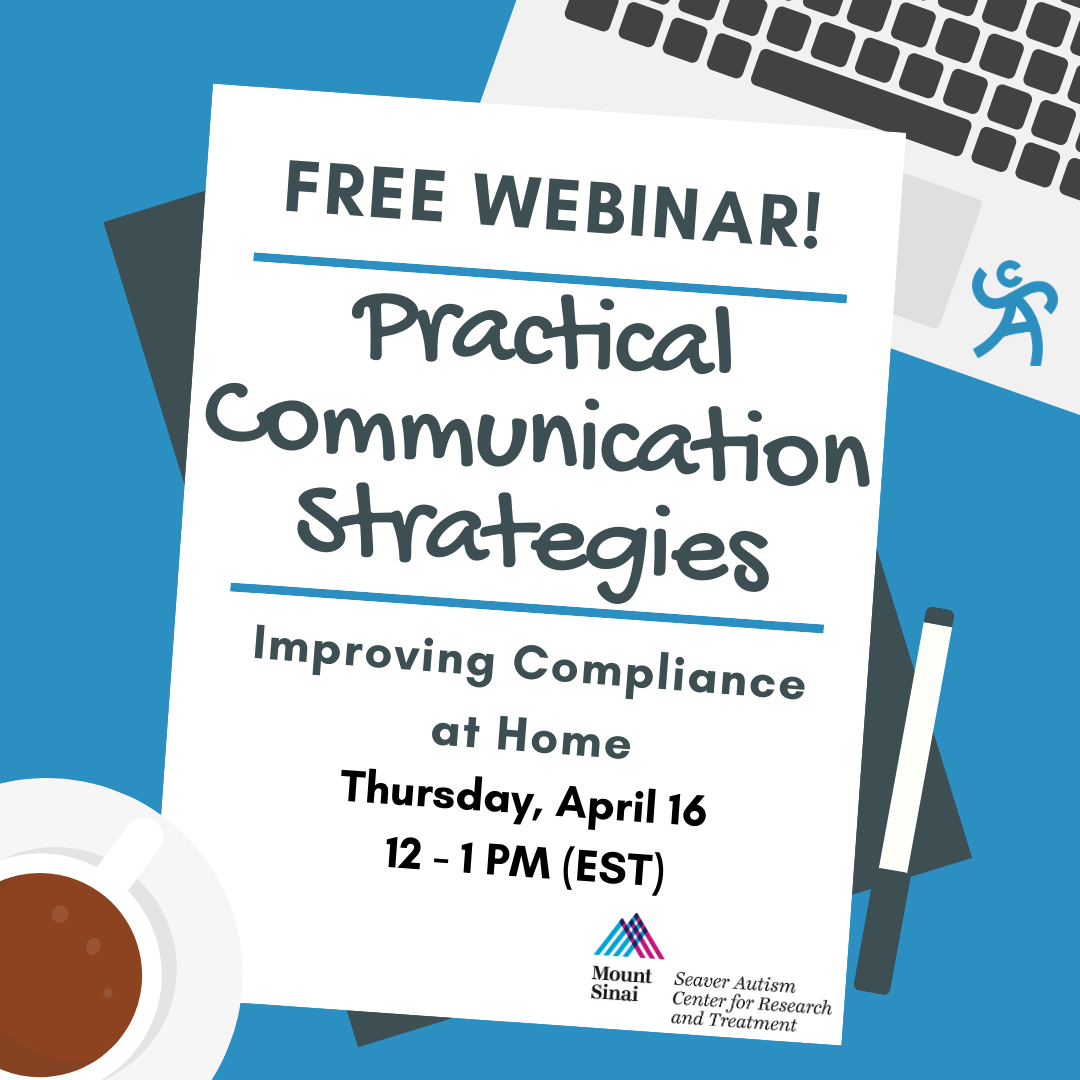
|
Use of the Emergency Department During the COVID-19 Pandemic - Autism Science Foundation
April 4, 2020 by autismsciencefoundation
Authors:Erin Lopes, CRNP, Nathan Call, PhD, Muhammed Wassem, MD and Alycia Halladay, PhD

For many families with autism, especially those with co-occurring medical conditions like seizures, visits to the hospital emergency department (ED) can be frequent. Some behavioral issues send families to the ER whenever there are no effective crisis management services available. However, now that hospitals are seeing an extremely high volume of patients with COVID-19, many families do not want to risk exposure. Families with children with autism and additional complex medical needs may feel isolated from their child’s outpatient healthcare providers at this time. Being sheltered at home and isolated from their child’s regular health care team may lead families to feel that a visit to the Emergency Department (or Room, ER) is the only solution to seek immediate care. Here are some practices that have changed since states have imposed shelter in place orders.
Preparing Individuals with Intellectual/Developmental Disabilities for Medical Treatment at Hospitals - StonyBrook.edu

Click on the name of your state below to download a COVID-19 Disability Form to complete online and print.
Alabama Alaska Arizona Arkansas California Colorado Connecticut Delaware Florida Georgia Hawaii Idaho Illinois Indiana Iowa Kansas Kentucky Louisiana Maine Maryland Massachusetts Michigan Minnesota Mississippi Missouri Montana Nebraska Nevada New Hampshire New Jersey New Mexico New York North Carolina North Dakota Ohio Oklahoma Oregon Pennsylvania Rhode Island South Carolina South Dakota Tennessee Texas Utah Vermont Virginia Washington Washington D.C. West Virginia Wisconsin Wyoming
With a strong research focus on reducing healthcare barriers for individuals with intellectual/developmental disabilities (IDD), I wanted to help our friends, family members and clients receive quality medical treatment regarding COVID-19 symptoms, should this become necessary. Most hospitals are not allowing staff or loved ones to accompany patients for treatment. After learning of incidents of inferior treatment for individuals with IDD in New York hospitals, I created the COVID-19 Disability Form which has been reviewed by ER physicians, families of individuals with IDD and adults with IDD. At the request of disability agencies nationwide, the form was amended for each state governmental agency’s Developmental Disabilities Services and the state’s equivalent of the MOLST/POLST. The goal is for the form to be completed proactively prior to seeking medical attention for COVID-19 symptoms at a hospital. Having this form, and the accompanying documents noted on page 2 of the form, will help to alert ER staff to the preferred communication with the patient with IDD and his/her needs and wishes. My hope is that everyone completes this form and never needs to use it. If you share, post or cite this form, please use the reference Ballan, M. & Perri, C. (2020). COVID-19 Disability Form. Stony Brook, NY: NY. If you have questions, please contact Michelle Ballan, PhD at michelle.ballan@stonybrook.edu. Or go to Dr. Ballan’s Faculty Profile
